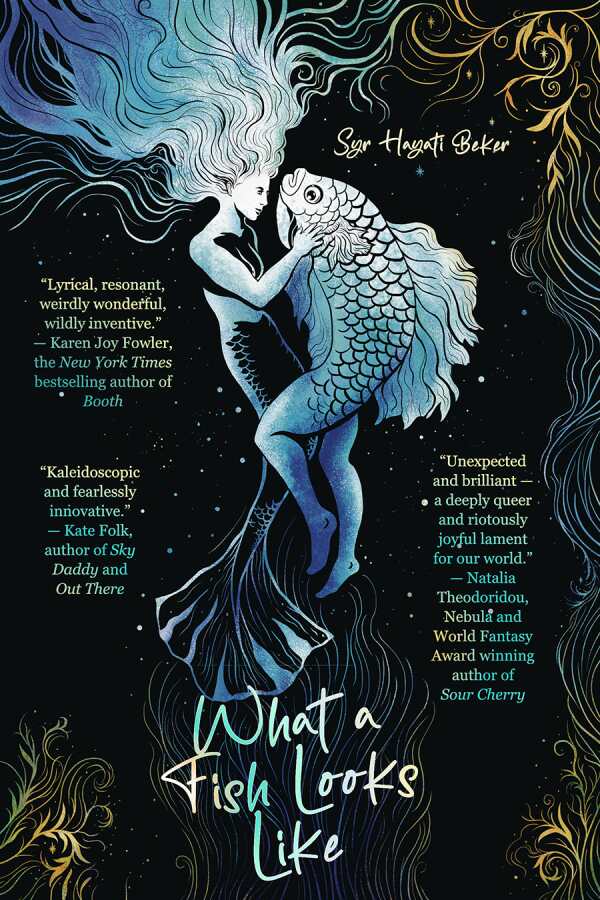What a Fish Looks Like
Syr Hayati Beker’s gleaming novella What a Fish Looks Like alchemizes confessional notes and remixed fairy tales to tell a story of queer survival amid ecological disaster.
As Earth faces giant tidal waves, uncontrollable fires, and toxic pollen, an ensemble of survivors form a dense web with two ex-lovers, Seb and Jay, at their center. Looming over them is a literal exit strategy in the shape of a space ship: The Exodus 3 is set to leave for an inhabitable planet in ten days, and one hundred tickets have been secured by the community.
Seb and Jay, separated but still entangled, clash over whether to stay in their difficult but perhaps salvageable home or escape to an unknown world. Their opposite reactions, along with the reactions of their friends, coalesce into broader explorations of how people process environmental collapse. The necessary optimism of activism butts against people’s inability to let go of the past. Technofuturist solutions like gene editing and augmented reality square up against the failures of science. A sense of absence haunts the pages, whether of extinct species or broken relationships.
Its structure kaleidoscopic, the book reads as a found object, a collection of fairy tales, annotated and written over by the characters to reflect their own lives. Passed notes, party invitations, and other ephemera appear between inventive riffs on classic stories like “Beauty and the Beast.” The cumulative effect is intimate, voyeuristic, and rewarding.
Despite the unfathomable adversities of its world, What a Fish Looks Like stands firm in its belief in love grounded in queer community. “Anything can be a habitat, even just one person,” a character muses. The end of the world is when people need each other the most.
Reviewed by
Luke Sutherland
Disclosure: This article is not an endorsement, but a review. The publisher of this book provided free copies of the book to have their book reviewed by a professional reviewer. No fee was paid by the publisher for this review. Foreword Reviews only recommends books that we love. Foreword Magazine, Inc. is disclosing this in accordance with the Federal Trade Commission’s 16 CFR, Part 255.

